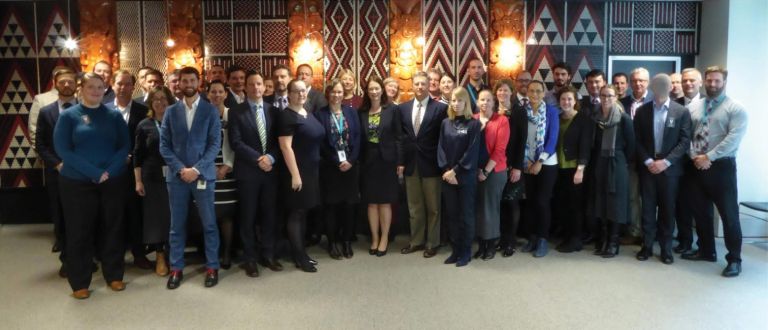
In mid-August 2019, the Australian Civil-Military Centre (ACMC) co-facilitated with the New Zealand Ministry of Foreign Affairs and Trade (MFAT) a two-day civil-military workshop in Wellington New Zealand, which focused on the future of Antarctica.
Branded Antarctica 2050, Australian and New Zealand government agencies reflected on the strategic, policy and operational engagement in Antarctica over the medium term. The forum explored likely and possible Antarctic futures with consideration given to future capability requirements to meet the unique operating environments of Antarctica and the Southern Ocean. Enhanced civil-military understanding of strategic drivers, operations and challenges were presented to the plenary, leading to greater interagency policy consideration and operational practices.
Embedded across the workshop was a focus on New Zealand and Australian responses to the changing nature of the Antarctic environment. Participants actively discussed the value and importance of the Antarctic Treaty System (ATS); the civil-military dependencies; and the interplay between strategy, policy and operations in Antarctica. Overlaid across all discussions was the importance of the ATS as a complex of arrangements made for the purpose of regulating relations among states. For 60 years the ATS has provided a strong governance framework that perseveres claims of sovereignty while ensuring the interests of others are also protected, prioritises science and maintains Antarctica as a site for peaceful purposes. The ATS has delivered stability, growth, science, environmental protection and cooperation.
The focus of the workshop was the changing nature of the Antarctic environment, particularly in response to a changing climate and the change in visitor profiles. The workshop investigated the future requirements, impacts and opportunities of science, logistics, resources and tourism.

